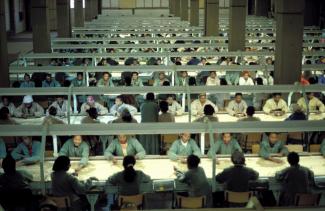Ethiopia
Industrial prospects

While the country certainly needs to increase agricultural output further to feed its population – even after all the progress made so far – its attempts to process raw materials into higher-value manufactured goods make sense. Adding value means commanding greater profit margins on global markets.
Coffee, spices, fruit, vegetables and animal products such as meat and milk will be processed in so-called agroindustrial parks. This approach will not only maximise profit but also create jobs along the value chain. Ethiopia desperately needs those jobs for its growing working-age population.
But processing agricultural produce is not the only pillar on which Ethiopia’s future manufacturing sector will rely. The country is looking to attract light manufacturing operations in the leather, textile and clothing sectors as well as in the chemical and pharmaceutical industries. According to government thinking, foreign investment should help to create 2 million new manufacturing jobs by 2025. (ak)
















